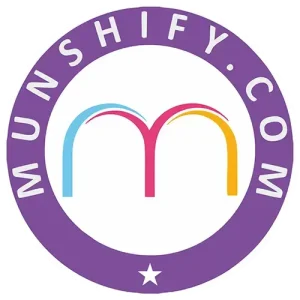Recruitment is the backbone of any organization, and having the right tools to streamline this process is essential for success. The HRMS system offers many features aimed at making recruitment easier and more efficient. However, choosing the right HRMS with features tailored to your organization’s needs can be a daunting task.
In this blog, we will explore the 10 major features to look for in recruitment HRMS to help you make an informed decision.
1. Job Design in the HRMS system
2. Process Management
3. Applicant Tracking
4. Candidate Management
5. Employee Management
6. Resume Management
7. Reporting and Analytics
8. Compliance
9. Onboarding
10. Employee Satisfaction and Engagement
Features of HRMS
- Job Design in HRMS system: Utilizing existing employee data to inform job descriptions is crucial. Look for HRMS system that can analyze the characteristics of your highest-performing employees to identify key skills, knowledge, and experiences required for specific roles. Additionally, the ability to identify areas lacking in your workforce can aid in designing comprehensive job descriptions.
- Process Management: A robust employee HRMS should seamlessly manage the entire recruitment process, from job creation to onboarding. Features such as job description templates, automatic publication of vacancies on multiple platforms, and social media integration can significantly streamline the process and ensure compliance with hiring policies.
- Applicant Tracking: An Applicant Tracking System (ATS) is a must-have feature in modern HRMS system. It allows for the efficient sorting, screening, and tracking of job applications. Look for ATS with automatic sorting capabilities based on predefined criteria like employment history and qualifications to save time and effort.
- Candidate Management: Effective communication with candidates at every stage of the recruitment process is essential. Look for employee HRMS that facilitates scheduling interviews, assessments, and providing timely updates to candidates, both internally and externally.
- Employee Management: Recruitment often involves collaboration among various stakeholders within the organization. HRMS system should automate scheduling of interviews, involve relevant team members, and promote internal mobility by notifying existing employees of job vacancies.
- Resume Management: Managing resumes manually can be time-consuming. Opt for employee HRMS with resume parsing capabilities that extract relevant information from CVs to create a searchable database of potential candidates, simplifying future recruitment efforts.
- Reporting and Analytics: Data-driven insights are invaluable for optimizing recruitment strategies. HRMS system must offer comprehensive reporting and analytics tools to measure recruitment efficiency, track key metrics like time-to-hire and turnover, and identify areas for improvement.
- Compliance: Compliance with legal regulations is non-negotiable in recruitment. Ensure your employee HRMS helps maintain compliance by monitoring recruitment communications for discriminatory language and generating mandatory reports as per local laws.
- Onboarding: While not strictly a recruitment feature, seamless onboarding is integral to the overall recruitment experience. Choose an HRMS that incorporates onboarding functionalities to ensure a smooth transition for new hires and set the stage for long-term employee satisfaction and engagement.
- Employee Satisfaction and Engagement: The recruitment process directly influences employee perceptions of the organization. Look for HRMS system that enhances the candidate experience, portrays the company positively, and fosters engagement from the initial interaction.
Investing in the right recruitment HRMS can revolutionize your hiring process and contribute to the long-term success of your organization. By prioritizing features such as job design, process management, applicant tracking, and compliance, you can streamline recruitment efforts, attract top talent, and drive business growth. Evaluate your organization’s unique needs and select an HRMS system that aligns with your goals for a competitive edge in today’s dynamic job market.
Introducing Munshify HRMS: Your Ultimate HR Solution! Say goodbye to scattered tasks with our comprehensive software. From recruitment to onboarding, performance management, and beyond, Munshify HRMS has you covered. Explore today!
FAQ’s
1. What is an HRMS system, and why is it essential for recruitment?
An HRMS system, or Human Resource Management System, is a comprehensive software platform that automates and streamlines HR functions, including recruitment. It is essential because it helps organizations efficiently manage job postings, candidate applications, and the interview process, ultimately enhancing hiring efficiency and candidate experience.
2. How does an HRMS system help improve the recruitment process?
An HRMS system improves the recruitment process by automating tasks such as resume screening, interview scheduling, and candidate tracking. This reduces manual work for HR teams, accelerates hiring timelines, and provides data-driven insights to optimize future recruitment strategies.
3. Can an HRMS system help with onboarding new employees after recruitment?
Yes, many HRMS systems have built-in onboarding features that streamline the transition from candidate to new employee. This includes automating tasks like documentation, orientation scheduling, and training assignments, ensuring a smooth start for new hires and a consistent onboarding experience.
4. Does an HRMS system support mobile access for recruitment tasks?
Most modern HRMS systems offer mobile-friendly platforms or dedicated apps, allowing HR teams to manage recruitment tasks on the go. Mobile access enables hiring managers to review applications, schedule interviews, and communicate with candidates seamlessly, enhancing the flexibility of the recruitment process.
5. How can an HRMS system improve candidate engagement during recruitment?
An HRMS system can enhance candidate engagement by offering automated communication tools, such as personalized email updates and interview reminders. It also provides self-service portals for candidates to track their application status, making the process transparent and keeping candidates informed throughout each stage of recruitment.


